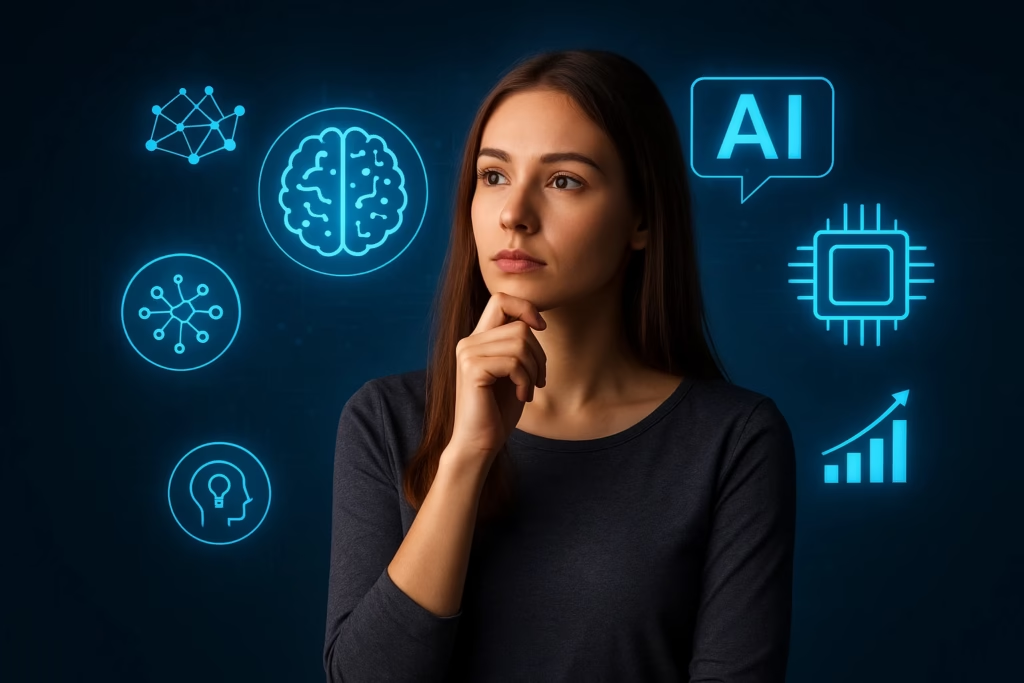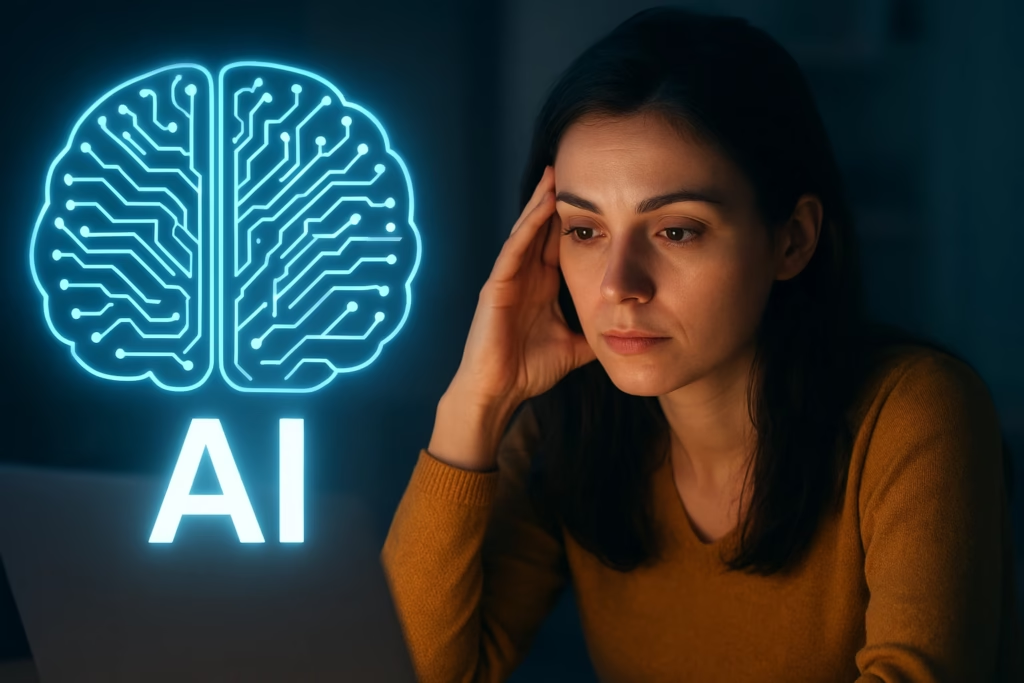You ask ChatGPT to summarise a book, DALL·E to imagine a scene, or Google Bard to plan your week.
A few months later, you realise — your thoughts feel… outsourced.
Welcome to the new age of the digital mind, where artificial intelligence doesn’t just serve you — it quietly reshapes you.
The Comfort Trap of Cognitive Outsourcing
In psychology, there’s a concept called “cognitive offloading” — when we use external tools to store or process information so our brain doesn’t have to.
It’s why we rely on GPS instead of remembering routes, or phones instead of recalling birthdays.
AI has amplified this habit to an industrial scale.
A 2023 study in Frontiers in Psychology found that frequent reliance on generative AI tools increases passive information consumption and reduces active memory encoding — meaning we remember less because the machine remembers more.
What feels like liberation is actually mental outsourcing.
Each time we let AI “think” for us, our brain quietly decides it doesn’t need to build those neural circuits anymore.
Dopamine on Demand: The New Mental Addiction
The human brain evolved to love novelty — it rewards discovery with dopamine.
AI models, designed for infinite novelty, have become the perfect dopamine dispensers.
Every chat, image, or AI-generated idea gives us a micro-reward — just enough to keep us scrolling, prompting, and creating without reflection.
Harvard neuroscientist Dr. Judson Brewer explains that this dopamine loop mirrors what happens in digital addiction: “We get hooked not by certainty, but by the promise of something new.”
Over time, this cycle rewires attention and emotional regulation.
You might notice it already — that slight restlessness when you can’t “ask the AI” for a quick fix.
The Slow Death of Original Thought

When your creative process begins with “Let’s see what AI says,” you’re not thinking — you’re editing machine output.
And while that’s efficient, it’s not entirely creative.
In 2024, a Nature Human Behaviour study showed that overexposure to algorithmic suggestions leads to idea convergence — people across the world start generating similar, less diverse ideas.
The result? A silent flattening of human imagination.
Our collective intelligence is starting to think in templates.
Can We Reverse It?
Fortunately, yes.
Neuroscience tells us the brain is plastic — it can rewire itself.
Here are three science-backed ways to reclaim mental autonomy:
- Intentional Friction
Occasionally choose manual effort — write by hand, do mental math, or brainstorm before using AI.
Friction builds cognition. - Digital Sabbaths
A 2022 study in Computers in Human Behavior found that even 24 hours of tech disconnection resets dopamine sensitivity and attention control. - Reflective Prompts
Instead of asking AI “What’s the answer?”, try “What am I missing?”
It shifts your brain back into active reasoning mode.
The Final Thought
AI is not evil — it’s a mirror.
It reflects our hunger for ease, our impatience with complexity, and our endless chase for novelty.
But if we let it think for us too often, it might slowly become us.
As Dr. Maryanne Wolf of UCLA puts it:
“We are losing the deep reading brain — the one that takes time to think, to doubt, to imagine.”
AI won’t destroy human intelligence.
But it might gently distract it to death — unless we choose to stay conscious in how we use it.
